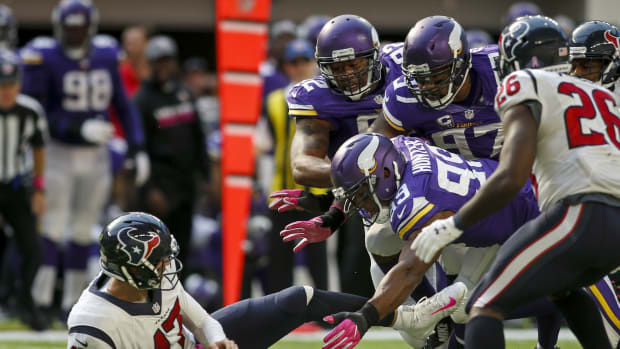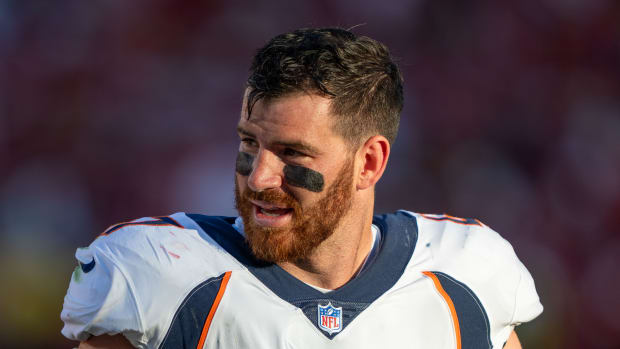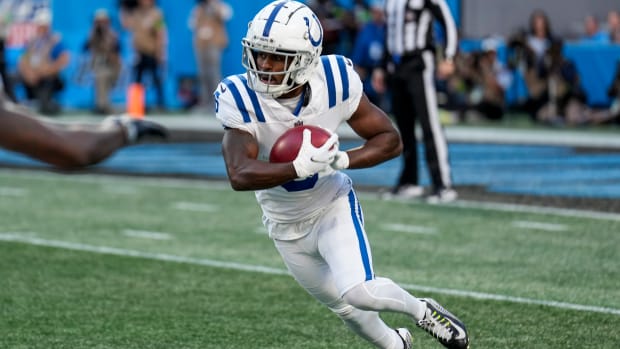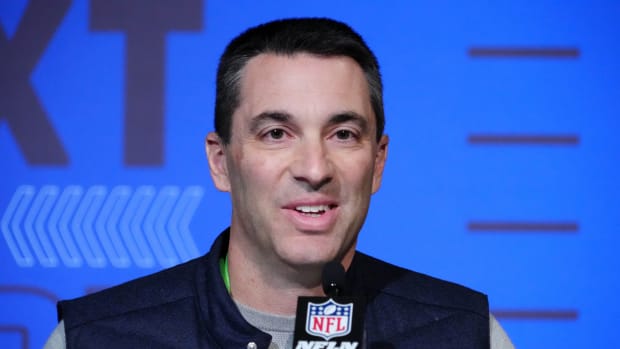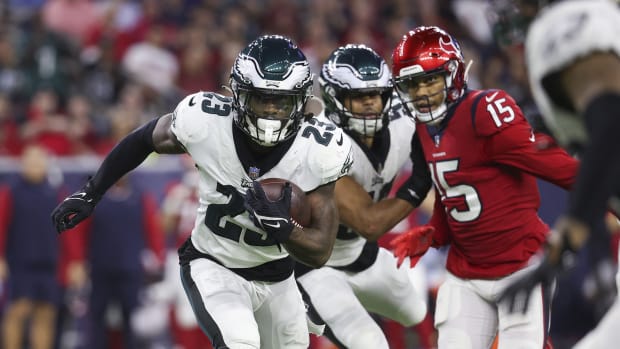Why Luke Kuechly’s Retirement From the NFL Shouldn’t Be Considered Early
Call them retirements, but not early ones
Luke Kuechly retired from the NFL last week with a heartwarming social media post, setting off surprise from fans and media that Kuechly was walking away after “only” eight NFL seasons. As one of the league’s greatest inside linebackers, Kuechly both delivered and received significant physical punishment. In his deliberations about whether to return for a ninth season, my sense is that punishment, both to his body and brain, weighed heavily.
Kuechly was one of the first well-known players that can I recall not only sitting out a game after a concussion, but sitting out multiple games with a concussion. At the time how I admired Kuechly for ignoring the “play through it” culture and setting an example for players at all levels to properly rehab the brain. Having said this, I clearly understand the business aspect of the game, and that players without Kuechly’s job security feel more pressure to play through concussions than him. Nevertheless, Kuechly’s month-long hiatus was one of the first public messages that it was O.K. to “rehab” a concussion.
Kuechly’s retirement, among other retirements, shouldn’t be framed as “early.” Kuechly played a short-area position in a violent game for eight NFL seasons—more than twice the average career. Before the NFL, he probably played football for, conservatively, another 10 years. Eighteen years of contact football does not represent an “early retirement.”
Kuechly, Andrew Luck, Rob Gronkowski, Calvin Johnson and Patrick Willis, among others, retired after NFL careers of seven to nine years in the NFL. Will retiring after seven to nine seasons become a trend? That is too strong a phrase, as there are only one or two a year. However, I do think accomplished players who have achieved financial security are more cognizant of leaving on their terms before their team would inevitably “go a different direction.” Indeed, roughly 98% of NFL players are “retired” involuntarily by the NFL. The other 2% such as Kuechly, Luck, Gronkowski, Johnson, Willis and others walk away on their terms, not the team’s. And another change in perception about NFL players leaving seems to be afoot: There is no stigma in walking away and, alternatively, there may be elevated respect for doing so. And that is empowering.
Kuechly walked away from football while still playing at the highest level. He will now write new chapters to his life, which will be fuller without the grind of the NFL. Good for him.
***
Insights on coaching hires
As every year, NFL coaching firing and hiring season came and went quickly. Here are some perspectives on the four teams that made recent changes.
Browns: They appear to have done what I suggested: Pick the analytical “lane” and go all in. Senior executive Paul DePodesta, after trying to put square peg coaches Hue Jackson and Freddie Kitchens in round holes, finally got his guy in Kevin Stefanski, someone he had previously pursued for the position. Whatever you think of statistically based decision-making in sports (or business), this is the lane the Browns have chosen, and they (finally) have a coach who buys in, with a general manager who buys in next to come. For the first time in recent memory, the Browns appear to have a clear direction.
Cowboys: Two teams used me as a reference for Mike McCarthy, and neither were the Cowboys. In other words, McCarthy had options. McCarthy was clear with teams that he didn’t want to get into personnel or contract management; he just wanted to coach. And that, of course, endeared him further to the Jones family. While there was diversion in the media about the Cowboys' looking at college coaches such as Lincoln Riley, they wanted an experienced NFL coach with skins on the wall, and McCarthy fit the bill.
As to the “elephant in the room” question to McCarthy, I heard he was very open and honest about his relationship with Aaron Rodgers, one that I chronicled here. As with most relationships where people see each other every day for 12 years, it simply got stale. McCarthy represents a nice upgrade in Dallas over the previous coaching staff.
Panthers: Reports indicated that Matt Rhule was scheduled to meet the Giants after the Panthers, so Carolina aggressively finalized the deal to make him the franchise’s next head coach. It reminded me of the Packers’ head coach search in 2006, when the Vikings aggressively negotiated and signed Brad Childress before he could board a flight to Green Bay. Let’s hope Rhule works out better for the Panthers than Childress did for the Vikings.
As for Rhule’s choice of the Panthers over the Giants, I get it. Carolina owner David Tepper seems to understand and embrace the fact that while there is a salary cap for players, teams can gain competitive edges by spending liberally in non-capped ares such as coaching, sports science and player amenities. My sense is the combination of Tepper and Rhule, who built successful programs in places very difficult to succeed (Temple and Baylor), will bring sustained success to Carolina.
Giants: I joined the many people Googling the name Joe Judge when the Giants made their choice. And although it is important to be open-minded about coaching hires, Judge’s opening press conference was full of so many platitudes and cliches that I am left wondering what, exactly, did the Giants see that truly differentiated him from other candidates? As always, time will tell and the jury will be out for a while on the Judge (sorry, lawyer joke).
***
Where is the “cheating” line?
Although this column deals with football, the Astros' cheating scandal in Major League Baseball brings up a question central to all competitive sports: Where, exactly, is the line we allow athletes and teams to approach for competitive advantage, yet not cross? And with advances in technology, that line is becoming harder and harder to define.
Strangely, MLB allows for old-school, “manual” sign-stealing, yet prohibits any new-age methods, such as those employed by the Astros, that are aided by technology. In other words: You can cheat, but just don’t use electronics do to so. It seems odd, but it’s always been done that way in baseball.
The NFL embraces some technology, such as coaching communications to quarterbacks and defensive captains, yet coaches—fearful of overzealous competitors—still talk into their play sheets covering their mouths when giving instructions. And, of course, video monitoring of teams is clearly taboo and heavily disciplined. But let’s be honest: If we think there isn’t some sort of use of technology to try to gain a competitive edge, albeit not to the level of the Astros, we are being naive.
In sports and in business, everyone is trying to gain a competitive edge. The question is always the legality, morality and efficacy of the method to gain that edge. And sports leagues and governing bodies spend a lot of time on rules and regulations to force compliance and govern lines not to be crossed. But, as we are seeing and will increasingly see with advances in technology and data gathering, these lines will increasingly become moving targets. This is a problem that will only become harder to manage for governing bodies in sports.
The will to win is a powerful force, for good and, sometimes, for bad.
Question or comment? Email us at talkback@themmqb.com.

































